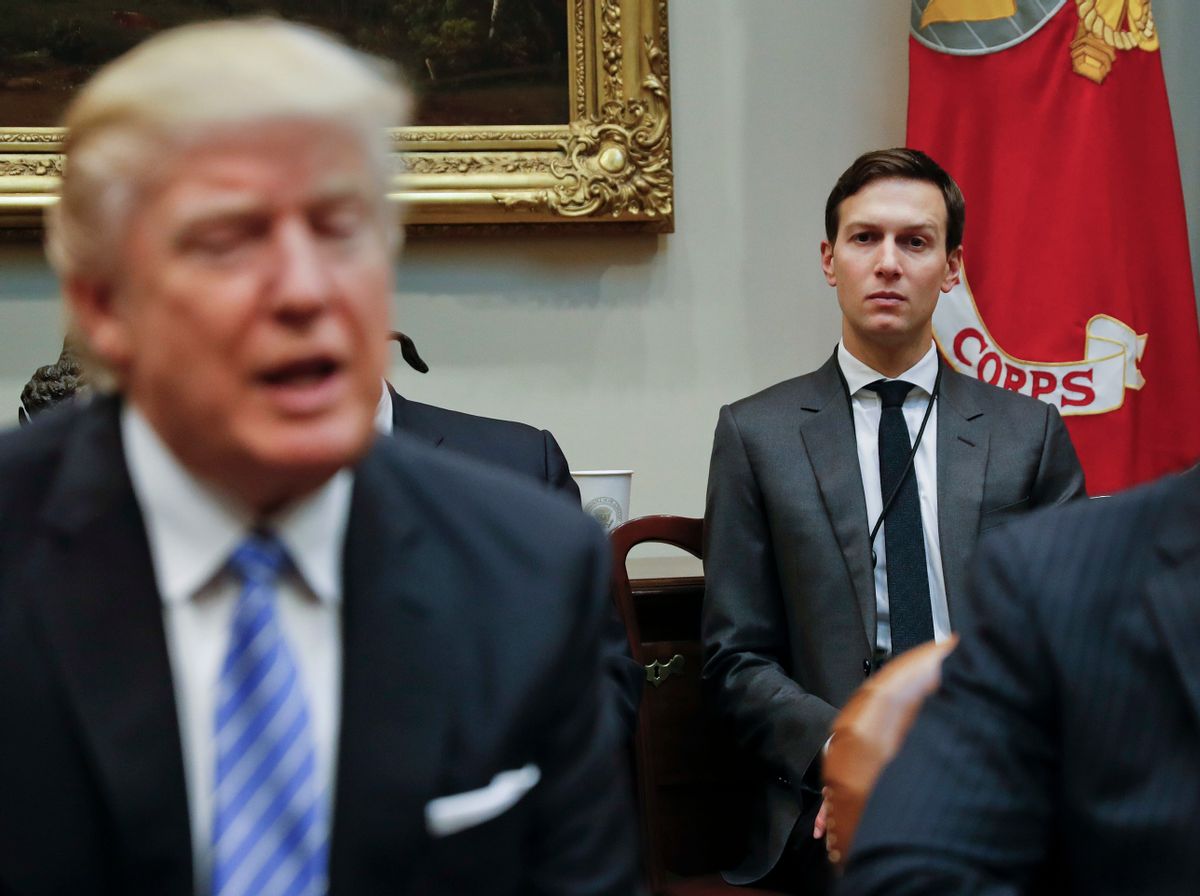Jared Kushner, a White House senior adviser and son-in-law of President Donald Trump, continues to stun the public with his secretive tactics and brazenly unscrupulous behavior.
Since the first day of the Trump administration, Kushner has been under scrutiny for financial and business conflicts of interest. With the recent exposure of the vastly flawed security clearance process that allowed him to access top secret information despite not being approved by the FBI, mixed with the growing fear that Kushner could be manipulated by foreign governments through business deals, it's easy to see why he's one of the most hated people inside the Beltway.
On Wednesday, The New York Times reported that two massive loans were given to Kushner's real estate firm, Kushner Companies, after he met with their chief executives at the White House.
Joshua Harris, a founder of Apollo Global Management, advised the Trump administration on infrastructure policy and met with Kushner on several occasions. There were talks about Harris even being gifted a White House job, but it never came to fruition, the Times noted. However, Harris lent Kushner's family firm, of which Kushner still has majority interest, $184 million.
The loan was one of the largest received by Kushner; however, that was quickly topped by Citigroup after Kushner had several meeting with chief executive Michael L. Corbat. The multinational investment bank lent Kushner "$325 million to help finance a group of office buildings in Brooklyn."
Kushner's total real estate holdings and investments are worth at least $761 million and likely much more, "because . . . [the] company has done at least $7 billion of deals in the past decade," the Times noted.
"This is exactly why senior government officials, for as long back as I have any experience, don’t maintain any active outside business interests," Don Fox the former acting director of the Office of Government Ethics under Obama told the Times. "The appearance of conflicts of interest is simply too great."
On Tuesday, The Washington Post reported that "officials in at least four countries have privately discussed ways they can manipulate" the president's son-in-law "by taking advantage of his complex business arrangements, financial difficulties and lack of foreign policy experience, according to current and former U.S. officials familiar with intelligence reports on the matter."
Kushner's role in the Trump administration is quite vast, and he's been tasked with several major diplomatic duties, despite having had no prior experience in office. There is a serious threat of conflicting interests and the possibility he could be manipulated by foreign governments for business deals. Trump has said Kushner would bring peace to the Middle East, and he tasked Kushner with being a broker for peace between Israelis and Palestinians, but Kushner's interests are evidently at odds with that plan.
For one, his family has donated to the construction of Israeli settlements, which are deemed illegal under international law and have only bogged down a potential peaceful resolution. There's also a solid case to be made that Kushner could have already been manipulated due to his vast web of shady dealings.
Investigative journalist Marcy Wheeler elaborated in the Times:
During a period when Mr. Kushner was negotiating President Trump’s first visit to China, his family business was trying to sell a debt-ridden property in New York to an insurance company with ties to the Chinese Communist Party. Public scrutiny of the deal scuttled it. Last May, The New York Times described how, immediately after the Trump administration extended a visa program for wealthy investors, Mr. Kushner’s sister invoked Mr. Kushner in a presentation seeking Chinese investment in one of the family’s New Jersey real estate developments.
In light of the security clearance process debacle that ultimately left Kushner's access to classified information downgraded from interim "Top Secret" to interim "Secret," it's evident that Kushner is tangled in shady business dealings and that his ethical standards have flown out the window long ago.



Shares